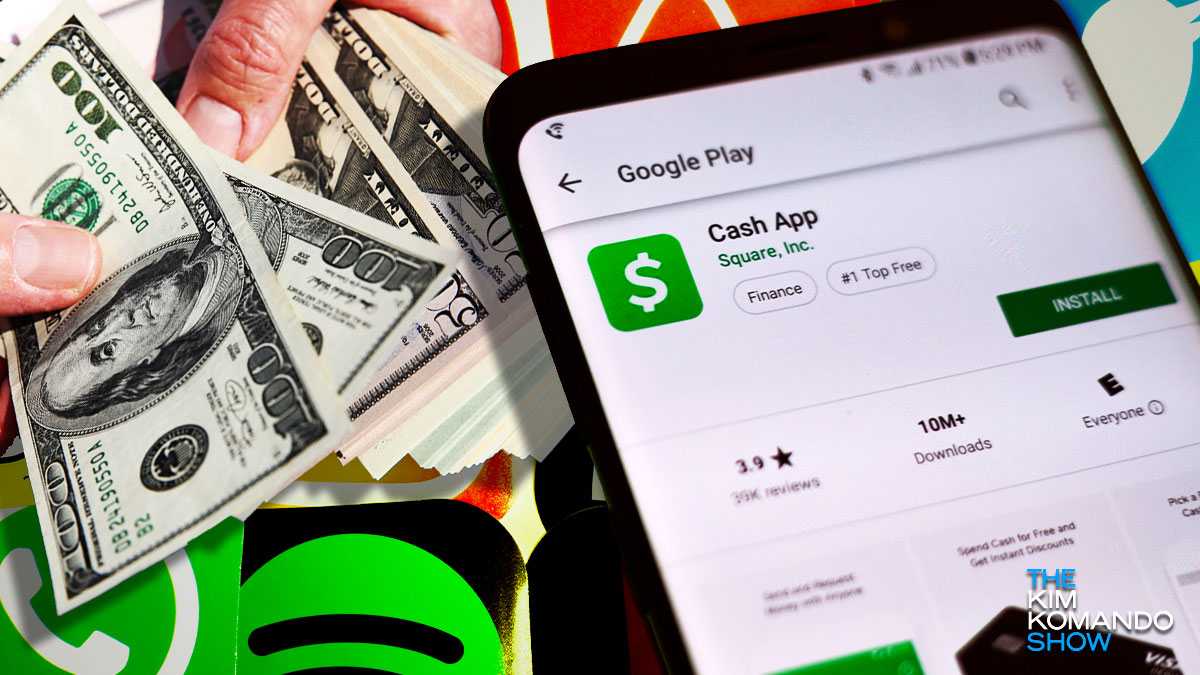Don't fall for these fake cryptocurrency ads all over Facebook

New cryptocurrencies are constantly popping up. While Bitcoin is the most well-known crypto, others like Ethereum and Shiba Inu have steadily grown in popularity.
Lucky Block is one of the newest and ties itself to the lottery industry. However, there aren’t too many cryptocurrencies that hedge their bets on social media. Well, that doesn’t seem to be the case if you believe some advertising on Facebook.
Keep reading to find out how scammers are using social media to spread ads for fraudulent cryptocurrencies.
Here’s the backstory
Have you heard about the new Meta cryptocurrency backed by Facebook founder and Meta CEO Mark Zuckerberg? If you haven’t, that is a good thing. Over the last few weeks, several advertising banners on Facebook have promoted the crypto, complete with Zuckerberg’s photo.
The ads claim the platform gives users a chance to invest in Meta cryptocurrency. And to find out more, you can read all about it on a Facebook page called Metaverse. If you didn’t know, Facebook’s parent company rebranded to Meta, with Zuckerberg announcing his intentions to build a digital world called the Metaverse.

But the crypto advertising isn’t just using Zuckerberg, as The Markup discovered. Similar ads have also popped up across social media, replacing the Facebook CEO’s face with Amazon CEO Jeff Bezos and Tesla CEO Elon Musk.
If it hasn’t been made clear, these crypto ads are bogus, and there are no plans to launch a Meta-inspired cryptocurrency. With or without Musk and Bezos.
“Meta doesn’t offer any such cryptocurrency. The ads, until recently available for viewing in Facebook’s public ad library, were frauds that slipped through Facebook’s content moderation process, despite the use of Zuckerberg’s image and the company’s new logo,” The Markup explains in a blog post.
What you can do about it
Facebook and Meta have strict rules and regulations for advertising cryptocurrencies, so it is unclear how these ads made it through the review process. More Facebook incompetence, we’d imagine.
SIM swapping is one of the most dangerous phone hacks - And it's on the rise

You might assume that the SIM card in your mobile phone is safe. After all, it is firmly embedded into your device, and someone would need to take it out physically to access it. But that isn’t the only method. Tap or click here for an in-depth look at SIM swapping scams.
These giveaway scams are all over Facebook, Instagram and Cash App – Don’t fall for it

Scammers often target victims with fanciful schemes to increase their wealth. Whether through investing in cryptocurrencies or filling in forms, there will always be a catch. Pro tip: Get Kim’s eBook Cryptocurrency 101 for sound advice on how to invest in crypto.
A classic Facebook scam is still going strong - Don't fall for it

If you have spent time on social media over the last few years, you probably know your villain name, which Disney character you are most similar to, or how well your friends know you. Here’s another quiz you should take: Which generation has the worst password habits?
Apple patches bug that can cause your iPhone to crash over and over

(Updated Jan. 12, 2022 – Apple has released a patch to take care of the annoying bug detailed in the following article. Update your iPhone to iOS 15.2.1 and iPad to iPadOS 15.2.1 now to fix the problem. Step-by-step instructions on updating your device can be found at the end of this article.)
No, that's not an angry email from your boss - Don't fall for this new scam

Americans are hard-working, and most of us take pride in what we do. So, it can be jarring when a customer or a colleague complains about your work ethic. The dreaded “I want to speak to the manager” or “Corporate will hear about this” is enough to ruin a perfect day. Tap or click here to save time in your workday with this new Slack trick.
Scams are getting smarter - Don't fall for this one tricking Amazon customers

Holiday shopping scams should be no surprise at this point. Thieves know tons of people are looking for great deals on the hottest items of the season and do their best to rip them off. Tap or click here for details on holiday shopping scams that are already making the rounds.
Before you log in to Facebook or WhatsApp again, read this warning

There are plenty of ways cybercriminals steal your details. One of the most common methods is directing you to a fake website through text messages or phishing emails.
While the phishing email’s wording can differ, scammers regularly use legitimate brands to lure you in. By spoofing an email from a social media platform or service provider, they hope that you won’t notice minor differences from the real thing. Tap or click here for subtle clues that email is a clever phishing scam.
Check your PC or Mac for a dangerous program that records your keystrokes

Criminals looking to rip you off never stop coming up with clever new ways to do it. Sometimes, their schemes run behind the scenes on your device and you may never know what’s going on.
One example comes in the form of malicious apps that are designed to run adware. Another sneaky way thieves can rip you off is through a keylogger, a program secretly installed on your device to record keystrokes.
Here's how much your credit card is now worth on the Dark Web - and the one account worth a lot more

Payment apps make it easy to pay back friends, settle up a restaurant bill or order something online. There’s also a sanitary advantage, as you don’t have to handle credit cards, payment machines or cash.
While convenient, payment apps do carry risks. There are right and wrong ways to use them safely. Tap or click here for our tips on locking down these apps.
A man used these tricks to break into phones and steal nude photos - Here's how to outsmart creeps like this

You can never be too careful when it comes to online security. Scammers and hackers are a constant danger to your privacy, data and finances. While there is no guaranteed method to remain safe, you can protect yourself and minimize the risk of falling victim.
Data from another social media site leaked - Watch out for scams
For many, social media platforms are the primary way of communicating with friends and family during the pandemic. It has also served as a great way for people to remain in contact with old acquaintances.
But recently several social media platforms have come under attack from hackers, stealing millions of records and personal information. Earlier this month, hackers made off with 533 million Facebook records. Tap or click here to find out if your account was exposed.
Use these secret iPhone codes to see if someone is spying on your calls and texts
If you had to guess, how secure do you think your iPhone is from intrusion? Aside from malware and phishing attacks, there are several other ways in which cybercriminals can breach your data. Your phone can also be spied on without you even knowing it.
5 free security downloads every computer needs

We’re constantly seeing spikes in phishing attacks, malicious websites and other dangers lurking on the web. All that adds up to big money. According to the U.S. Federal Trade Commission, consumers lost more than $3.3 billion to fraud in 2020.
Hackers are targeting the COVID-19 vaccine distribution chain

Vaccines are a complex business, but a safe and effective one may be the key to getting through the COVID-19 pandemic and back to our normal lifestyles. And thanks to scientists and researchers’ tireless effort the world over, we have several promising candidates that are currently awaiting approval.
Shocking texts from Chinese hackers fooling people out of their money

Android users are no strangers to malware. In fact, malicious apps are common enough on the Google Play store that browsing for new software can feel like walking through a minefield.
Of course, there are a few ways you can tell which programs are safe to download. A low amount of perfect reviews with very few comments, for example, can indicate a fraudulent app. Tap or click here to see how to spot the latest batch of Google Play malware.
Kim's free security pick that needs to be on all your devices

Cybercrime, data breaches and internet attacks are on the rise. Between sophisticated new tools and the global pandemic, numbers are off the charts.
Some of the more popular schemes used by cybercriminals are phishing attacks, website misdirections and cloned sites. They often build real-looking websites that copy a legitimate brand or service’s official site to fool you into giving out your personal data, credentials and financial information.
9 tips and tricks to maintain your privacy and stay productive on your Mac

When it comes to staying safe and productive online, you need to take charge. Privacy and productivity come down to a few decisive behaviors that you need to make sure you’re following as a general rule.
Most Apple fans in the early days didn’t think they needed to worry about things like viruses, that it only happened to PCs. But, your Mac isn’t as secure as you think it is. Tap or click to find out how hackers are targeting Apple machines nowadays.
Netflix scam: This symbol means someone has stolen your account

Businesses may be suffering under the COVID-19 pandemic, but Netflix certainly isn’t one of them. With so many people indoors for months at a time, the platform has seen its overall usage skyrocket.
Because of this, scammers and hackers of the world are targeting Netflix users as part of their widespread phishing campaigns. The goal: Steal login information and potentially sell it on the Dark Web. Tap or click here to find out more about phishing attacks on Netflix and Zoom.
Microsoft warns of massive phishing campaign targeting PCs

Have you been busy during quarantine? If not, don’t worry — most of us haven’t been. But that statement doesn’t apply to hackers and cybercriminals, who’ve spent the COVID-19 pandemic refining their technique and creating phishing websites to steal people’s data.
